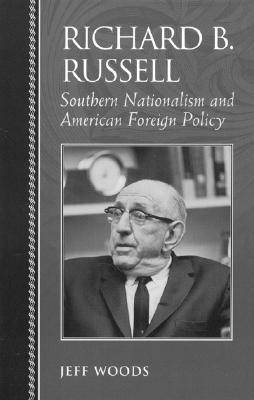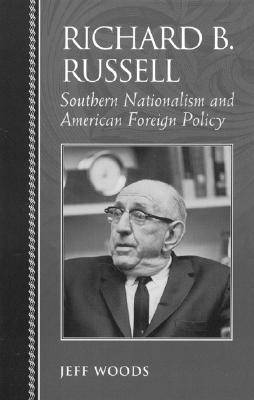
- Afhalen na 1 uur in een winkel met voorraad
- Gratis thuislevering in België vanaf € 30
- Ruim aanbod met 7 miljoen producten
- Afhalen na 1 uur in een winkel met voorraad
- Gratis thuislevering in België vanaf € 30
- Ruim aanbod met 7 miljoen producten
Zoeken
€ 110,45
+ 220 punten
Omschrijving
Richard B. Russell, a Southern Democrat, was arguably the most influential United States senator for much of the 1950s and 1960s. In this engaging study, Jeff Woods considers Russell in the context of "traditional" regional politics and exhibits how a domestic policy agenda influenced foreign policy at the height of the Cold War. Russell, the senior senator from Georgia, used his position of power to confront an otherwise liberal internationalist foreign policy establishment with his non-interventionist, militarist, and Southern nationalist approaches. His position was influential in the playing out of various international crises, including the conflicts in Vietnam, Panama, Cuba, the Dominican Republic, and Congo. For better or for worse, Russell helped to encourage the nuclear arms race, protect and empower the CIA, enforce the Monroe Doctrine, and define the limits on American engagement in Vietnam. While Russell mastered the powers of advice and consent enough to alter tactical Cold War decisions, his strategy of containment would never become mainstream. In this engaging new book, Jeff Woods reconsiders Russell's role as foreign policy maker during the Cold War. Making use of recently released presidential tape recordings and archival material, Woods offers new evidence and insights into this southern senator's influential career.
Specificaties
Betrokkenen
- Auteur(s):
- Uitgeverij:
Inhoud
- Aantal bladzijden:
- 192
- Taal:
- Engels
- Reeks:
Eigenschappen
- Productcode (EAN):
- 9780742544970
- Verschijningsdatum:
- 7/12/2006
- Uitvoering:
- Hardcover
- Formaat:
- Genaaid
- Afmetingen:
- 160 mm x 231 mm
- Gewicht:
- 385 g

Alleen bij Standaard Boekhandel
+ 220 punten op je klantenkaart van Standaard Boekhandel
Beoordelingen
We publiceren alleen reviews die voldoen aan de voorwaarden voor reviews. Bekijk onze voorwaarden voor reviews.











